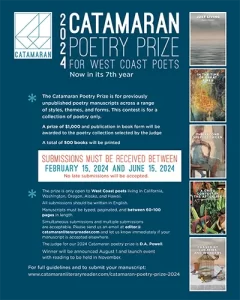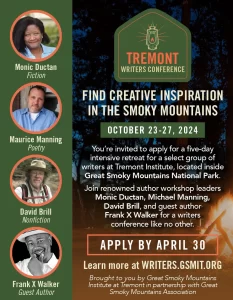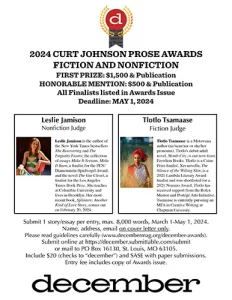Grain – Summer 2009
Volume 36 Number 4
Summer 2009
Quarterly
Sima Rabinowitz
“That tug toward the low-or-lower-tech,” in other words . . . Luddite. This issue’s theme. Not anti-technology, editor Sylvia Legris explains, but rather a celebration of “that desire to make art or writing using methods and materials that are slower, messier, less reliable.” Despite the fact that I find many high-tech tools (my cell phone and my PC to name just two) to be among the most unreliable of objects and resources and often far messier than non-technological things, I appreciate what Legris means – a deliberate distancing from “hypervelocity,” and I love the work she’s chosen. Categorized under the headings “machine,” “paper,” “fixture,” “mortar,” and “terminal,” Grain Luddite focuses on our relationship with the stuff of life (from our flesh and bones to the bones of our homes) with which we interact, without its being, in the technological sense, interactive.
“That tug toward the low-or-lower-tech,” in other words . . . Luddite. This issue’s theme. Not anti-technology, editor Sylvia Legris explains, but rather a celebration of “that desire to make art or writing using methods and materials that are slower, messier, less reliable.” Despite the fact that I find many high-tech tools (my cell phone and my PC to name just two) to be among the most unreliable of objects and resources and often far messier than non-technological things, I appreciate what Legris means – a deliberate distancing from “hypervelocity,” and I love the work she’s chosen. Categorized under the headings “machine,” “paper,” “fixture,” “mortar,” and “terminal,” Grain Luddite focuses on our relationship with the stuff of life (from our flesh and bones to the bones of our homes) with which we interact, without its being, in the technological sense, interactive.
Jeanne Rudolph contributes an essay about Heidegger and the typewriter, a consideration of thinking in a former era about the manual vs. the mechanical. Rudolph also contributes a brief and entertaining prose musing in the special section on Salisbury House, a restaurant chain considered “a Winnipeg institution.” This special “Fixture” section is the first installment of what is planned as a regular feature of the magazine, responses by artists and writers to a landmark or fixture specific to an area or city. “Anything goes,” Legris tells us. It’s a wonderful idea and has inspired some delightful writing and graphics here, including short memoir style pieces, prose musings, and poems.
The issue’s “paper” section features translations by Jeramy Dodds of Old Norse poems from the Poetic Edda from the 13th century. Written on vellum text, the size of a “fat paperback,” did Luddite critics in 1270 lament the transition from aural to written transmission, I wonder? These are heroic and mythological poems about the god Thor, and they begin, ironically and aptly enough, with a tool!
Thor woke in a rage when he felt
his hammer, Mjonir, missing.
Beard bristling, back hair hackled
Earth’s number-one-son groped
about his crow-feather cot before belting
out, “Loki! Let your ear hear this, no
earthling or Valhallian knows my woes
My God-given tools’ been taken!”
The translation is nothing short of brilliant and even someone who may have thought she has no interest in early Norse poetry (me, for example) will be captivated by what Dodds has achieved here.
I was no less impressed with Joel Katelnikoff’s “Nine Fragments of a Pipe Bomb,” lengthy sections of couplets that recount a family story merging the best of poetry with the best of storytelling: unexpected twists of language, surprising insights, compelling narrative, authentic voices, and a sense that the world is only as large – and as small – as an individual can imagine it.
Finally, I must not conclude this review without at least a brief mention of Betsy Warland’s hybrid piece (part poem, part prose poem, part poetry theory), “The Line.” Could there be any “object” more suited to a consideration of what constitutes Luddite or not-Luddite? “All lines require years of effort,” she begins. I’d line up to follow her anywhere after an opening like that. And she need not say more, really, but I’m glad she does. What makes the line, as an object in the world, not-Luddite, is that it is, she writes, both emotional and tactile. And, truthfully, that’s what makes this whole exemplary issue of Grain truly a one-of-a-kind reading experience.
[www.grainmagazine.ca/]




